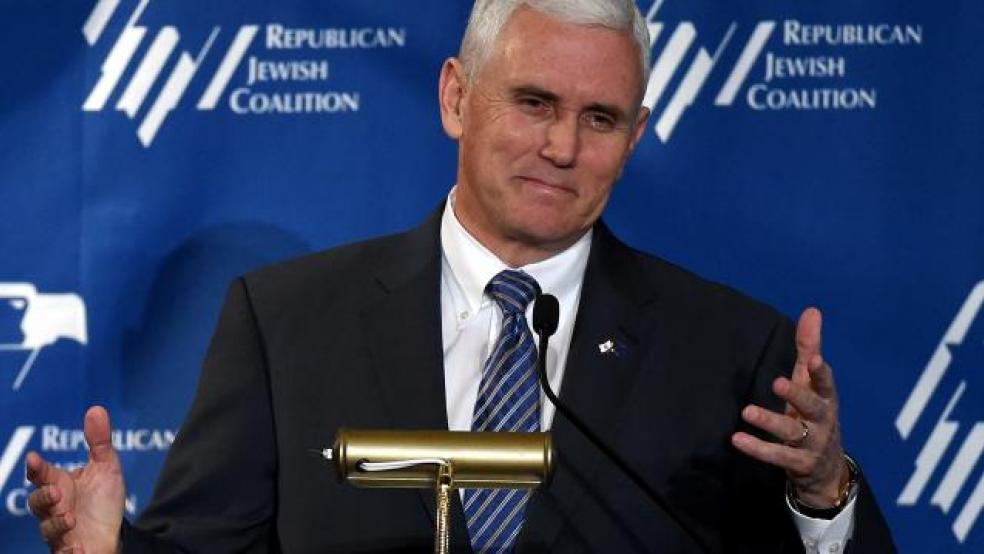There’s plenty of debate over whether presumptive Republican presidential nominee Donald Trump made the right call in selecting Mike Pence, the governor of Indiana, as his vice presidential running mate. As soon as Trump made it official on Friday, his likely opponent, Democrat Hillary Clinton, released an attack ad blasting Pence for hard right positions on social issues. On the other hand, American Conservative Union president Matt Schlapp released a glowing statement praising Pence as a “proven leader” with “Reaganesque” communications skills.
For voters whose primary focus is lower taxes, though, Trump could hardly have made a better choice than Pence. As the Tax Policy Center’s Richard C. Auxier points out today, in just a few years at the helm of the Hoosier state, Pence has cut numerous state levies.
Related: Why Trump’s Choice of Pence for Vice President Could Backfire
Indiana already had one of the lowest state income taxes in the country when Pence took over, but he insisted on driving it down even further, prodding the state legislature to reduce the rate by 5 percent, from 3.4 percent to 3.23 percent. The same bill eliminated Indiana’s inheritance tax. Taken together, lawmakers claimed that the move amounted to the largest tax cut in the state’s history, worth an estimated $1.1 billion.
Pence went on to sign legislation that will drive the state’s corporate tax down from 6.5 percent to 4.9 percent by 2021. He pushed for other changes to the tax code meant to benefit existing Indiana businesses and to attract other companies to the state.
During the 12 years Pence represented Indiana in Congress, he earned a reputation as a strong fiscal conservative. He was the co-sponsor of a bill that would limit the annual spending of the federal government in a given year to the average revenues the Treasury received in the three prior years.
Pence was one of the few GOP lawmakers to buck President Bush over the bank bailout during the financial crisis in 2008. In fact, Pence was consistently against using federal money to directly help homeowners or businesses during the crisis.
Related: 10 Things You Should Know About Mike Pence
Pence opposed almost all significant stimulus spending measures proposed during the Great Recession, including the original $825 billion American Recovery and Reinvestment Act of early 2009. He supported a much smaller $192 billion package later that year, but opposed other stimulus measures meant to create jobs and repair the nation’s infrastructure.
He voted in favor of ending the Home Affordable Mortgage Program and against monitoring the use of Troubled Asset Relief Program fund in order to drive more mortgage relief to troubled homeowners. He voted against the federal bailout of automakers General Motors and Chrysler, and supported an effort to claw back bonuses paid to executives and other employees of the global insurance giant AIG after federal assistance was required to prevent its collapse.
He is a longtime supporter of a balanced budget amendment to the Constitution, and has pressed for a similar change to the state constitution in Indiana.
He was also one of the leaders of the fight to do away with earmarks -- the directed spending lawmakers used to be able to insert into appropriations bills, usually for pet projects in their home districts or to help a favored interest group.





